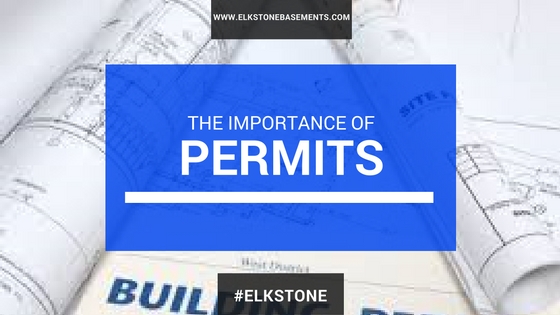What is a Construction Permit?
A Construction Permit (also know as Building Permit or simply Permit) required in most jurisdictions for new construction, or adding onto pre-existing structures, and in some cases for major renovations, such as Basement Finishing. Generally, the new construction must be inspected during construction and after completion to ensure compliance with national, regional, and local building codes. Failure to obtain a permit can result in fines, penalties, and demolition of unauthorized construction if it cannot be made to meet code.
Why do you need a Construction Permit?
- New buildings
- Additions(bedrooms, bathrooms, family rooms, etc.)
- Residential work (decks, garages, fences, fireplaces, pools, water heaters, etc.)
- Renovations (basement finishing, garage conversions, kitchen expansions, re-roofing, etc.)
- Electrical systems
- Plumbing systems
- HVAC (heating, ventilating, and air-conditioning) systems
Your home or business is an investment. If your construction project does not comply with the codes adopted by your community, the value of your investment could be reduced. Property insurers may not cover work done without permits and inspections. If you decide to sell a home or building that has had modifications without a permit, you may be required to tear down the addition, leave it unoccupied, or make costly repairs. A property owner who can show that code requirements were strictly and consistently met––as demonstrated by a code official’s carefully maintained records––has a strong ally if something happens to trigger a potentially destructive lawsuit. Your permit also allows the code official to protect the public by reducing the potential hazards of unsafe construction and ensuring public health, safety, and welfare. By following code guidelines, the completed project will meet minimum standards of safety and will be less likely to cause injury to you, your family, your friends, or future owners. *https://www.iccsafe.org/safety/Documents/BSW-Benefits-Permits.pdf
What is the purpose of Building Code:
The purpose of building codes are to provide minimum standards for safety, health, and general welfare including structural integrity, mechanical integrity (including sanitation, water supply, light, and ventilation), means of egress, fire prevention and control, and energy conservation.
Building codes have a long history. The earliest known written building code is included in the Code of Hammurabi,[3] which dates from circa 1772 BC.
- 228. If a builder build a house for some one and complete it, he shall give him a fee of two shekels in money for each sar of surface.
- 229 If a builder build a house for some one, and does not construct it properly, and the house which he built fall in and kill its owner, then that builder shall be put to death.
- 230. If it kill the son of the owner the son of that builder shall be put to death.
- 231. If it kill a slave of the owner, then he shall pay slave for slave to the owner of the house.
- 232. If it ruin goods, he shall make compensation for all that has been ruined, and inasmuch as he did not construct properly this house which he built and it fell, he shall re-erect the house from his own means.
- 233. If a builder build a house for some one, even though he has not yet completed it; if then the walls seem toppling, the builder must make the walls solid from his own means.
Top 5 reasons to Get a Permit
#1. INSURANCE
If an unpermitted basement is damaged by flood or fire, it may not be covered by your insurance-always check with your agent
#2. LIFE SAFETY
If Carbon Monoxide detectors are not placed in the correct locations or not installed at all. Electrical wiring is compromised or egress is not compliant or non-existent.
#3. LIABILITY
You may be liable if you sell your home and something goes wrong after the new homeowners movie in.
#4. HOME VALUE
An attractive and conforming basement space sells a lot easier. Some DIY or projects performed by fly-by-night contractors will actually depreciate your home.
#5. FINES & WORK STOPPAGE
If the building department catches work being done without a permit they will put a red notice on the front of your home to stop work and may fine you




Recent Comments